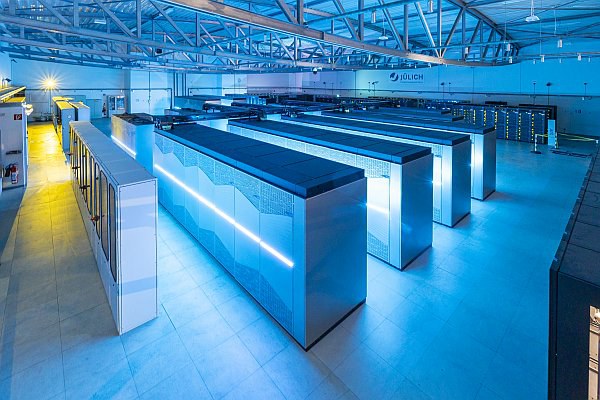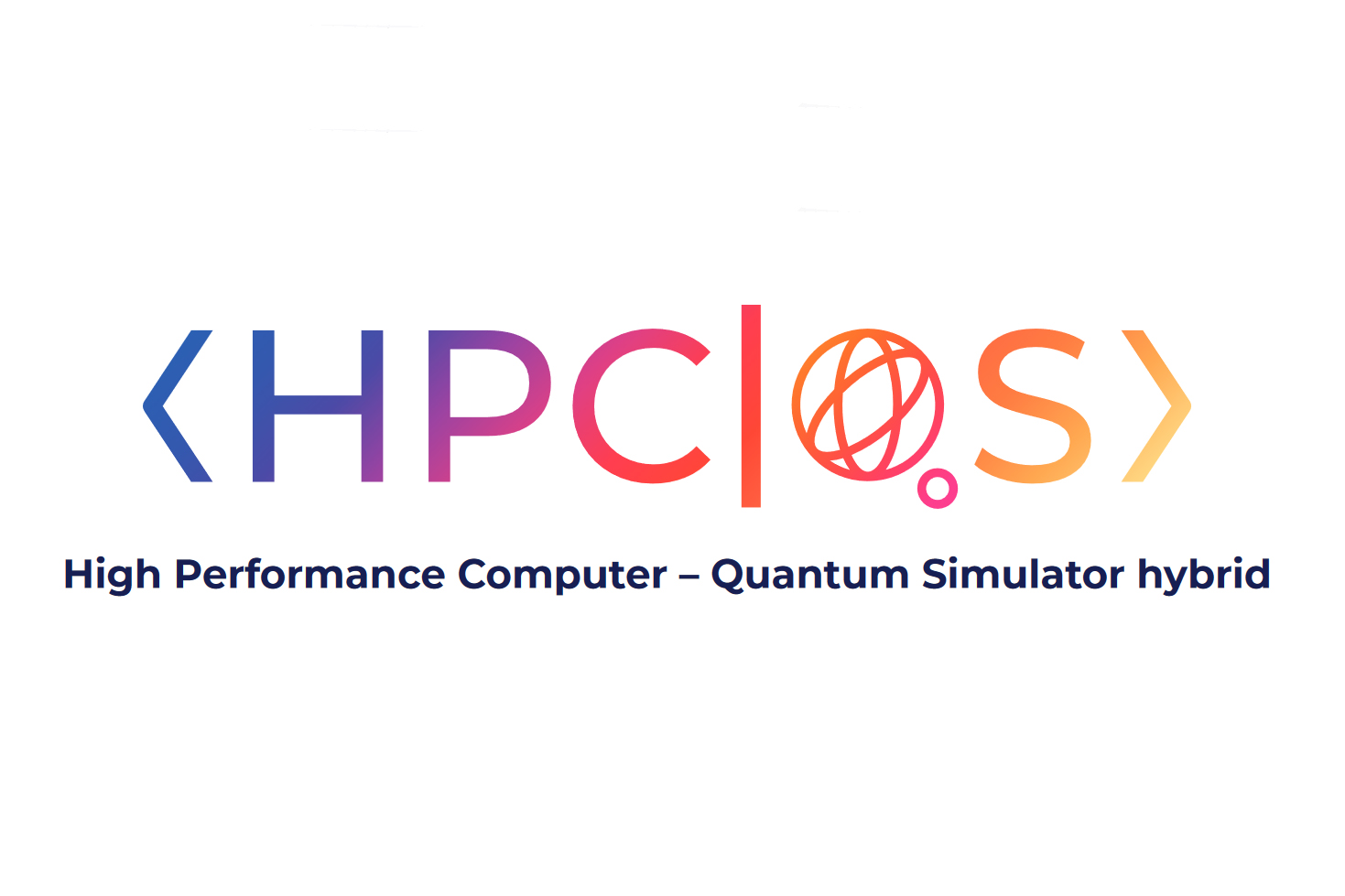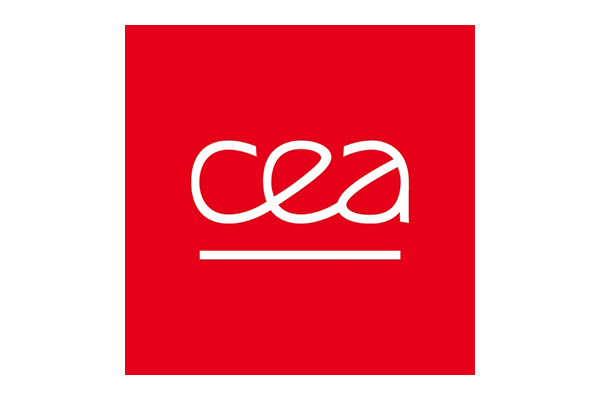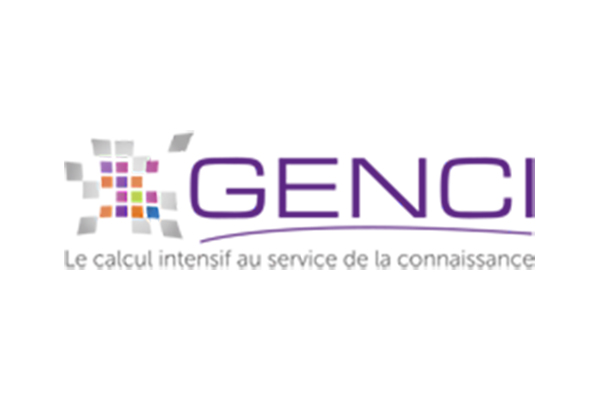With Software From Eviden and Pasqal, FZJ, GENCI and CEA Prepare European Research Communities for the Quantum Era
May 24th 2023
Forschungszentrum Jülich (FZJ), GENCI and CEA announce today that they will provide access to hardware-agnostic (EVIDEN QaptivaTM) and hardware-specific (PASQAL Pulser) programming and emulation environments as part of the pan-European hybrid HPC/quantum pilot project HPCQS. These first services will allow European research communities to prepare for the arrival of two twin 100+-qubit PASQAL quantum simulators, one at the Jülich Supercomputing Centre (FZJ/JSC) and one at CEA/TGCC, by the end of this year. In between, FZJ, GENCI and CEA will gradually deploy additional noisy emulators of such type of Fresnel analog quantum computers based on the technology of neutral atoms and will provide remote access to an identical Fresnel system hosted by PASQAL.
Launched in December 2021, HPCQS aims to develop, deploy and coordinate a European federated infrastructure, tightly integrating two quantum simulators, both controlling about 100+ qubits, one in the Tier-0 HPC systems Joliot Curie of GENCI, hosted and operated at CEA/TGCC, and one in the JUWELS modular supercomputer at FZJ/JSC. The European High-Performance Computing Joint Undertaking (EuroHPC JU) and six European countries (Austria, France, Germany, Ireland, Italy and Spain) are already involved in HPCQS.
The seamless integration of quantum hardware with classical computing resources, creating a hybrid system, is an essential step forward to unleash the power of quantum computers to handle first practical applications.
By providing access to the programming and emulation environments ahead of the implementation of the quantum simulators, FZJ, GENCI and CEA are encouraging potential end-users to explore hybrid HPC/quantum simulations to take advantage of these new accelerators. In order to reach this goal, EVIDEN and PASQAL will organize training sessions on myQLM (part of QaptivaTM) and Pulser. Adding noisy emulators of the envisaged PASQAL Fresnel system to the programming environment in the coming weeks will allow users to develop algorithms that are more likely to behave properly on a real quantum simulator.
“Users are thrilled to gain expertise in programming quantum simulators with the various tools provided in the framework of HPCQS in preparation for the arrival of the Fresnel devices.”, stated Prof. Kristel Michelsen, Head of Quantum Computing at JSC. Jacques-Charles Lafoucrière, Program Director at CEA, added that “by providing a phased access to programming environments and emulators, we want to build adoption among different end-user communities and make sure they acquire the right skill set to benefit from the actual quantum simulators when they are available.”
HPCQS also aims at monitoring and assessing emergent and promising quantum computing technologies. Therefore, FZJ, GENCI and CEA offer in addition access to other programming environments in the same fashion as myQLM and Pulser. Examples are Qiskit, Cirq, D-Wave Systems Ocean and the Linear-Optics Quantum Computing (LOQC) paradigm using Perceval (Quandela). Soon, users will also be able to explore NVIDIA cuQuantum. Other innovative frameworks tied to additional technologies such as silicon spins in carbon nanotubes, or cat qubits, should follow soon, along with applications libraries, to complement and enrich this ecosystem.
In the framework of EuroHPC JU’s deployment of six additional quantum-computing devices in the coming months, HPCQS is helping to pave the way for the adoption of these new devices, which will be added to a pan-European federated hybrid HPC/quantum computing and simulation (HPC-QCS) infrastructure. Stay tuned for the introduction of additional services for the benefit of European research communities.
Project Key Facts
Acronym: HPCQS
Title: High-Performance Computer and Quantum Simulator hybrid
Start date: 1st December 2021, Duration: 4 years
Budget: € 12 Mio (50% funded by EuroHPC)
Coordination: Forschungszentrum Jülich, Prof. Dr Kristel Michielsen
Partners: FZJ, CEA, GENCI, BULL, CNR, NUIG-ICHEC, University of Innsbruck, EURICE, CNRS, Inria, CINECA, BSC, FlySight, ParityQC, Fraunhofer IAF
Linked 3rd parties: ParTec, Sorbonne Université, CentraleSupélec
Contacts
Prof. Dr. Kristel Michielsen
Director of Jülich Supercomputing Centre
Head of the division HPC for Quantum Systems
Head of the Jülich UNified Infrastructure for Quantum computing (JUNIQ)
Speaker of Helmholtz Information Program 1 – Topic 1
PI in Topics 1 and 2
- Jülich Supercomputing Centre (JSC)






